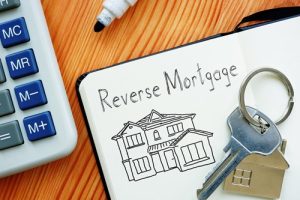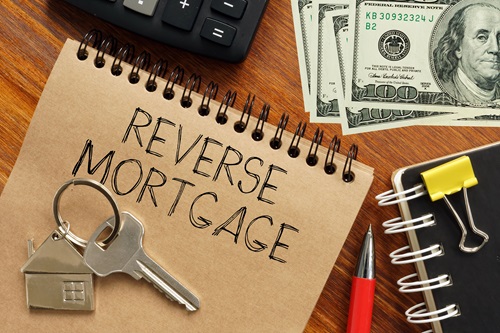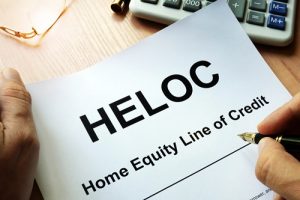
Thanksgiving is a wonderful time of year, filled with delicious food and cherished moments with family and friends. However, hosting a Thanksgiving feast can also be a source of financial stress, particularly when considering options like a reverse mortgage.
Interestingly, many people are concerned about how inflation will affect their holiday spending. Thankfully, there are smart strategies you can use to save money leading up to Turkey Day. This way, you can enjoy the holiday without straining your budget.
Understanding Your Thanksgiving Budget and the Role of a Reverse Mortgage
While it may be tempting to indulge in lavish ingredients and decorations, it’s crucial to remember that Thanksgiving is about more than just food. It’s also about family, laughter, and the spirit of gratitude. Thus, balancing an unforgettable feast with sensible spending helps you enjoy the holiday and reinforces the values of gratitude and togetherness.
Whether you’re hosting a large family gathering or a more intimate dinner with close friends, you can create a memorable celebration without undue financial stress. Here are some tips to help you prepare a festive Thanksgiving that respects your budget.
Plan Ahead for Your Thanksgiving Feast with a Reverse Mortgage in Mind
Planning is one of the most effective ways to save money for Thanksgiving. Start by creating a menu, making a shopping list, and setting a budget. Having a clear plan can prevent impulse purchases and keep your spending in check. Additionally, be sure to monitor discounts or deals leading up to the holiday.
Compare Prices to Get the Best Deals
Before heading to the store, take some time to compare prices at different supermarkets and online retailers. Many stores offer price-matching guarantees, ensuring you get the best deals on essential items like turkey, canned goods, and baking supplies. Furthermore, consider buying store-brand products, which often provide similar quality at a lower price.
Take Advantage of Sales and Coupons
Keep an eye out for Thanksgiving sales and promotions as the big day approaches. Many stores offer discounts on staples like canned vegetables, flour, and sugar. Additionally, you can use digital or paper coupons to save on various items, including baking ingredients and kitchen equipment. Therefore, don’t forget to check store flyers and websites for special offers.
 reverse mortgage in Myrtle Beach SC
reverse mortgage in Myrtle Beach SCBuy in Bulk for Future Savings
If you have adequate storage space, buy non-perishable items. For instance, stock up on canned goods and frozen vegetables when they’re on sale. This approach provides you with ingredients not only for Thanksgiving but also for future meals. Consequently, this strategy can save you money in the long run.
Focus on Seasonal and Local Produce
Whenever possible, opt for seasonal fruits and vegetables abundant during the fall. These items are typically more affordable and fresher than out-of-season produce. Additionally, shopping at local farmers’ markets can yield high-quality, affordable ingredients while supporting local businesses. This not only helps your budget but also strengthens your community in Myrtle Beach SC.
Additional Tips To Remember
Rethink Your Turkey Choice
While turkey is traditionally the centerpiece of the Thanksgiving meal, it can also be one of the most costly items on your shopping list. In fact, Americans spent over a billion dollars on Thanksgiving Day turkeys in recent years. Therefore, consider choosing a smaller turkey or even a turkey breast instead of a whole bird, depending on your guest list. Alternatively, explore other protein options, such as chicken or pork, or even vegetarian dishes. Remember, the focus should be on spending quality time with loved ones rather than the size of the entrée.
Reduce Food Waste for a Greener Thanksgiving
To minimize food waste, avoid overbuying ingredients, especially those that can’t be stored long-term. Plan your portions carefully, use leftovers creatively, and freeze excess items for future use. For example, leftover turkey can be transformed into sandwiches or soups, while surplus pumpkin purée can be utilized in various recipes throughout the winter.
Create DIY Decorations and Table Settings
Thanksgiving is not just about the food; it’s also about creating a warm and inviting atmosphere. Get creative by making your own decorations using items you already have at home, such as leaves, candles, and jars. This approach not only saves you money but also adds a personal touch to your celebration.
Consider Your Financial Future with a Reverse Mortgage
As we reflect on Thanksgiving and the importance of family, it’s also a good time to consider your financial well-being. One option to explore is a reverse mortgage. This type of loan lets older homeowners to turn their home’s equity into cash without selling their home or making regular monthly mortgage payments, as long as they maintain their property taxes, insurance, and upkeep.
Exploring a reverse mortgage in Myrtle Beach SC can relieve financial stress and enhance your lifestyle year-round. It’s a valuable tool for maintaining financial security, making home improvements, covering healthcare costs, or even fulfilling travel dreams—all while allowing you to remain in your home.
Secure Your Financial Well-Being Beyond Thanksgiving
Incorporating a Myrtle Beach reverse mortgage into your financial plan can be a strategic step toward securing your future and ensuring stable finances beyond the holiday season. By bolstering your budget, alleviating monetary concerns, and maintaining the necessary flexibility for a comfortable retirement, you can safeguard your well-being.
As you prepare for Thanksgiving, consider not only how to save money for the holiday but also how to protect your financial health in the long term. Be sure to seek the expertise of David Stacy Reverse Mortgage Specialist for more information.
Start planning your budget-friendly Thanksgiving today, and explore the possibilities of a reverse mortgage for your financial future! Call David Stacy Reverse Mortgage Specialist now.
http://reversemortgage-specialist.blogspot.com/2024/10/guide-to-budget-friendly-thanksgiving.html
https://reversemortgagespecialists.wordpress.com/2024/10/31/guide-to-a-budget-friendly-thanksgiving-with-a-reverse-mortgage/


 Reverse mortgages in Myrtle Beach SC
Reverse mortgages in Myrtle Beach SC
 Reverse Mortgage in Hilton Head Island, SC
Reverse Mortgage in Hilton Head Island, SC Reverse Mortgage in Hilton Head Island, SC
Reverse Mortgage in Hilton Head Island, SC